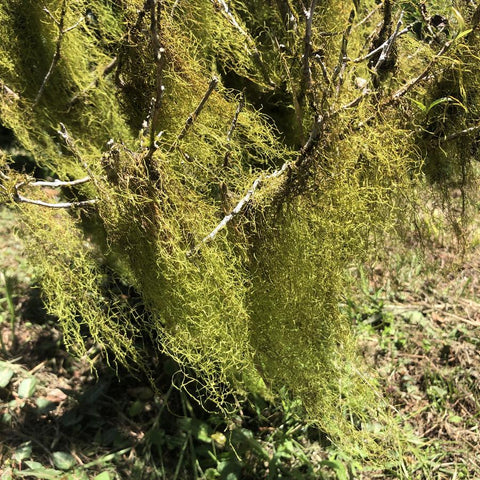
There’s no doubt that organic is a word that’s become diluted in the world of tea.
It can be used for teas that are certified as chemical-free. It can be used for teas that are fake organic, and it can be used for teas that are grown in a regenerative way, and without chemicals, but have absolutely no certification.
The label ‘organic’ is so problematic that you’ll often hear people say that they stay away from teas that are certified. That the only thing ‘certified organic’ means is that it’s lower quality and 50% more expensive. It’s a valid criticism and one that’s often true.
But why is this?
Why, in the high-quality tea world, wouldn’t a farm that’s basically organic go ahead and get certified? And why would somebody who loves tea, actively avoid purchasing certified organic teas?
Read on as we try to shed some light on the ‘organic’ problem, looking at why farmers might choose not to certify their teas and why organic doesn’t necessarily mean good.
So, why not certify?
Depending on the garden, there are a few reasons this might be.
1- It’s Not Worth The Cost.
Let’s take for example, the garden where we get our pomelo flower oolong. They make fantastic tea, and it has everything you’re looking for in an organic garden, but it’s not certified.
First off, this is because these farmers don't make very much tea. So, it doesn’t make sense for them to go and spend a bunch of money to get certified.
Secondly, the tea is amazing—it’s absolutely fantastic tea! It’s of such high quality and so beautiful; that certified or not, they’re going to sell it, and they’re going to get the price that they want.
2- Trying to get certified can be risky.
Imagine you're an organic farmer. You work so hard, put all your effort into being 100% completely organic. Then a neighbouring farmer sprays a chemical that wafts through the air, into your garden, and onto your tea.
Another common example, is when gardens are located beside the road. Often, street crews will come through spraying glycol phosphates, which then drift through the air and onto the crops.
When the teas are tested to be certified, traces of those chemicals can show up. The tea doesn’t pass the test because of that minuscule level of something, and then, not only do you not get certified, but you lose your reputation. For a lot of farmers, it’s a risk that just isn’t worth taking.
3- For a garden to be fully organic, you’re going to have to let many trees die.
To truly be organic, you have to let the trees go through the necessary cycles. As a farmer, this can be a huge problem and a reason why many don’t even try to go organic. The trees are their livelihood, and to go through a period of letting their income die, is no easy or even a viable choice.
For example—you’re working to have an organic garden, and suddenly you have a bug infestation. You’re at your wit’s end, you’ve tried everything, and you might lose your entire crop of plants—your entire income! Do you stick to your ideals and risk going out of business, or do you give up on being organic?
It’s not an easy choice, and it can make one wonder why a farmer, who needs to sell their tea to survive, would even try to go organic.

The thing is, the best teas are organic, handpicked, and small-batch—but not necessarily certified.
Without exception, the best teas in the world are agrochemical-free and grown in a regenerative way. If you want to make an excellent tea, you've got to do it organically. It’s something that people who drink a lot of tea, love tea, and are deeply into tea, eventually come to realize.
Take pu-erh. The best pu-erh in the world is made from forest-grown tea trees that are hundreds of years old. Nobody touches them at all, except when they go out, pick the leaves and bring them down to create something special.
The same goes for oolongs. The most flavorful oolongs that I have ever tasted are handpicked, small-batch, organic teas from family-run farms.
This is why certification is not necessarily done. When the teas are fantastic, and of the utmost quality, it’s known that they are pristine, organic, chemical-free and from regenerative gardens.
Hold up! That doesn’t mean that every organic tea is good.
You would never say, “oh, this tea’s organic, that means it’s good,” just like you would never say, “this tea is handpicked, so it’s gotta taste fantastic.” There will be organic teas that taste awful, but the point is that the best of the best teas are always organic and always handpicked.
No doubt there are those who will disagree, but at Mountain Stream Teas this is the mentality we live by.
The challenge is that 'organic' is hard to guarantee without certification.
We can tell you how much we believe in organic tea, and we can try to be as open and transparent as possible, but in the end, you kind of have to trust us. I hate to say it that way, but for the moment, that’s the reality.
In the future, as Mountain Stream Teas grows, we hope to be able to test every batch of tea that comes through our doors, make sure that they’re chemical-free and label them so that you can make an informed choice for yourself—but we aren’t there yet.
For now, all we can do is tell you that we are trying our hardest to find the cleanest teas possible. We’re doing our best, and we aim to keep improving.
We know there will be mistakes. Of course, we’re going to make mistakes, but we’re going to do all we can to make sure that the teas we get are as clean and as checked as possible. And we’re going to continue being honest with you.
That’s something we can promise.
Thanks so much for reading. If you have any comments, questions or disagreements, please post them below.
Have a wonderful day and enjoy your tea!


Leave a comment